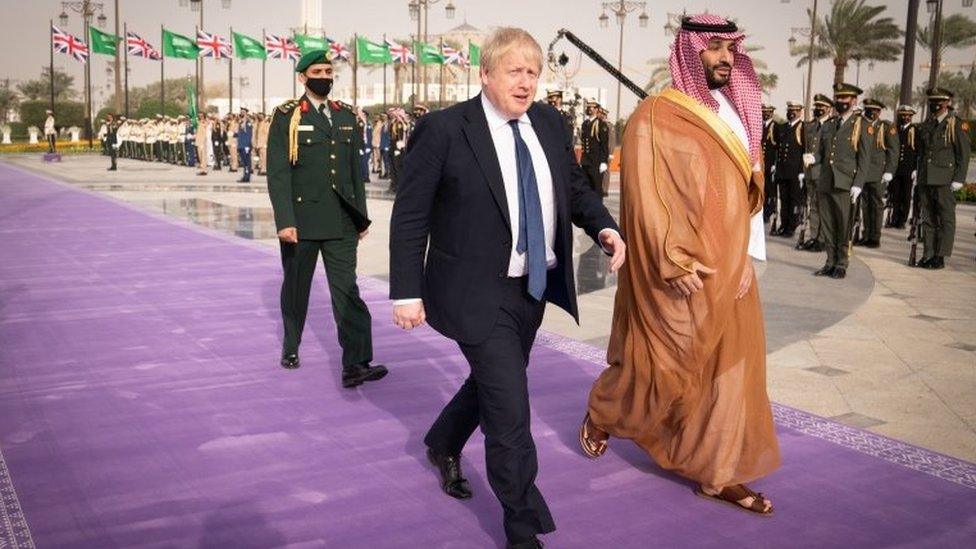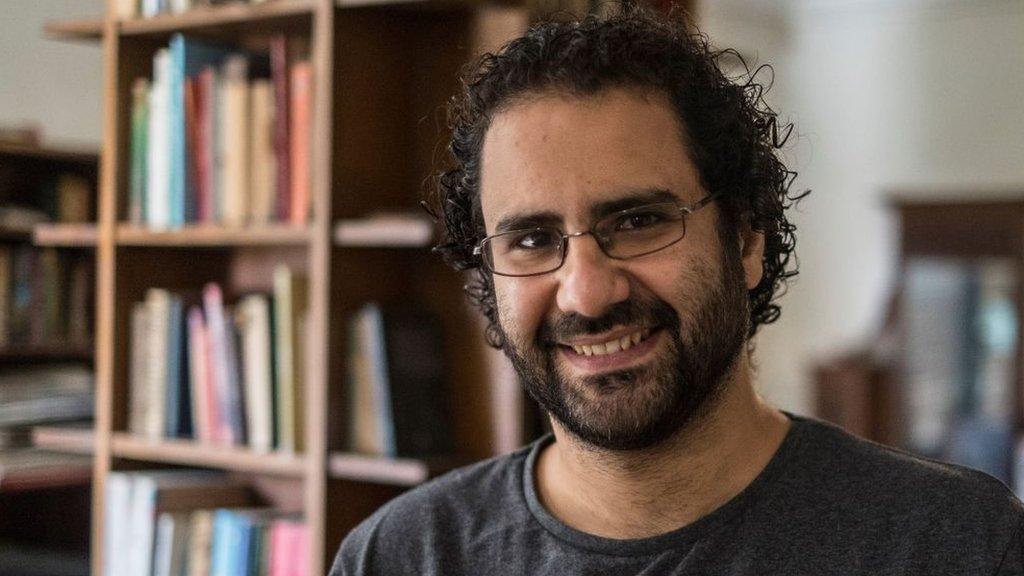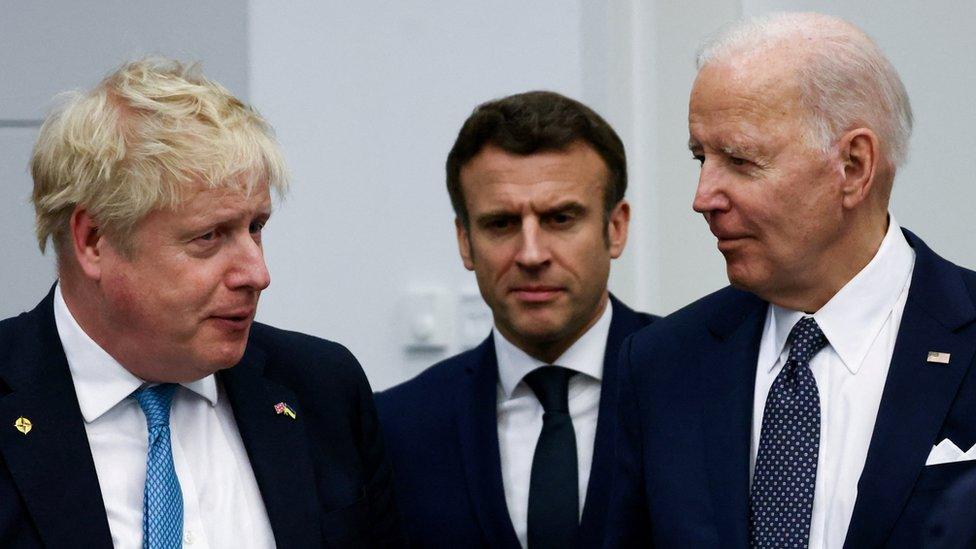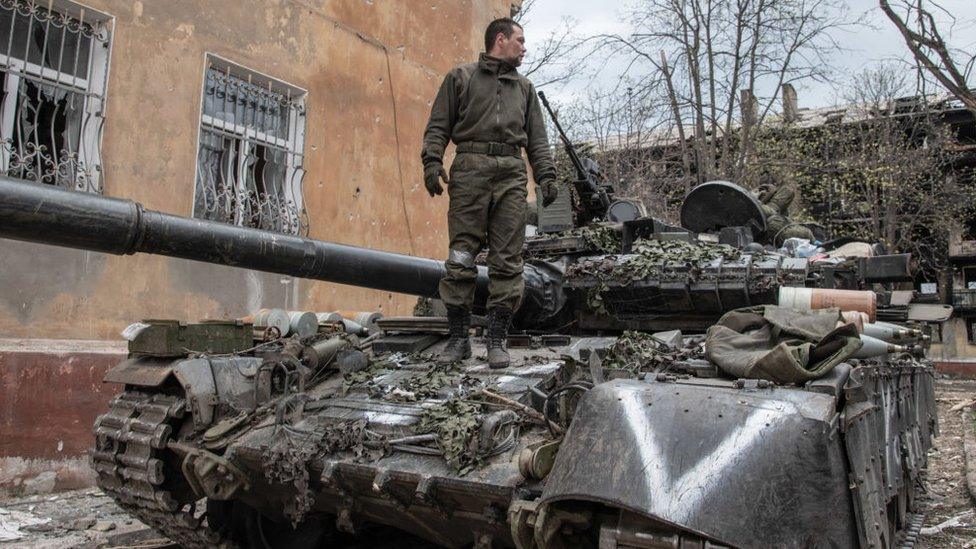Liz Truss fails to name time she challenged Gulf state on human rights
- Published
Chris Bryant asks Liz Truss to name a human rights issue she has raised with Gulf state leaders
Foreign Secretary Liz Truss has said it was "right" to forge closer links to Gulf states accused of human rights abuses as the UK deals with "major threats" such as Russia.
A committee of MPs asked Ms Truss how UK-Gulf relations fell into her policy of challenging repressive states.
She said she had raised human rights issues with Gulf state leaders.
But when repeatedly asked to name one example, Ms Truss she would not go into the details of private discussions.
"We are not dealing with a perfect world," Ms Truss told the Foreign Affairs Committee on Tuesday.
"We are dealing in a world where we have to make difficult decisions and I think it is right that we build that closer trading relationship with the Gulf states."
Critics have expressed concerns about the human rights records of Gulf states, which include Bahrain, Kuwait, Oman, Qatar, Saudi Arabia and the United Arab Emirates (UAE).
The United Nations has condemned Saudi Arabia, external for carrying out mass executions, and its Crown Prince Mohammed bin Salman has been implicated in the murder of Washington Post journalist Jamal Khashoggi in 2018.
But despite this, the UK government has long enjoyed warm relations with Saudi Arabia and co-operated on diplomatic, military and economic initiatives.
Last week, the UK government said it had launched trade negotiations, external between the UK and members of the six-nation Gulf Cooperation Council (GCC).
And in March, Prime Minister Boris Johnson met Gulf leaders in Saudi Arabia and the UAE to discuss energy security following Russia's invasion of Ukraine.
Mr Johnson said Western countries needed to move away from Russian fossil fuels and explore other partnerships, including with Gulf states, some of which are large global suppliers of oil and gas.
Meanwhile, Ms Truss has been pushing to build to "a network of liberty", external that promotes democracy through economic and security partnerships.
In several recent speeches and articles, Ms Truss has expressed a desire for the UK to end its strategic dependence on states with authoritarian governments.
'Important allies'
On Tuesday, Foreign Affairs Committee member and Labour MP Chris Bryant asked Ms Truss how she would describe the Gulf states in the context of her foreign policy aims.
"I would describe the Gulf States as partners of the United Kingdom," she said.
"Is every country that we work with exactly in line with United Kingdom policy on everything? No, they are not. But they are important allies of the United Kingdom."

Prime Minister Boris Johnson met Saudi Arabia's crown prince in March
Mr Bryant then asked about Mr Khashoggi's death at the Saudi consulate in Turkey in 2018.
Saudi Arabia claimed he had been killed in a "rogue operation", but a UN investigator concluded that Mr Khashoggi was "the victim of a deliberate, premeditated execution". Prince Salman has always denied any involvement.
In response to the question about Mr Khashoggi, the foreign secretary said: "What I would say is that Saudi Arabia is an important partner of the United Kingdom."
"What I am focused on is making sure we are dealing with the major threats to the world. The number one threat we are dealing with at the moment is the threat from Russia.
"In order to do that, we need to make sure we have alternative energy sources."
Related topics
- Published21 June 2022

- Published2 June 2022

- Published13 May 2022
